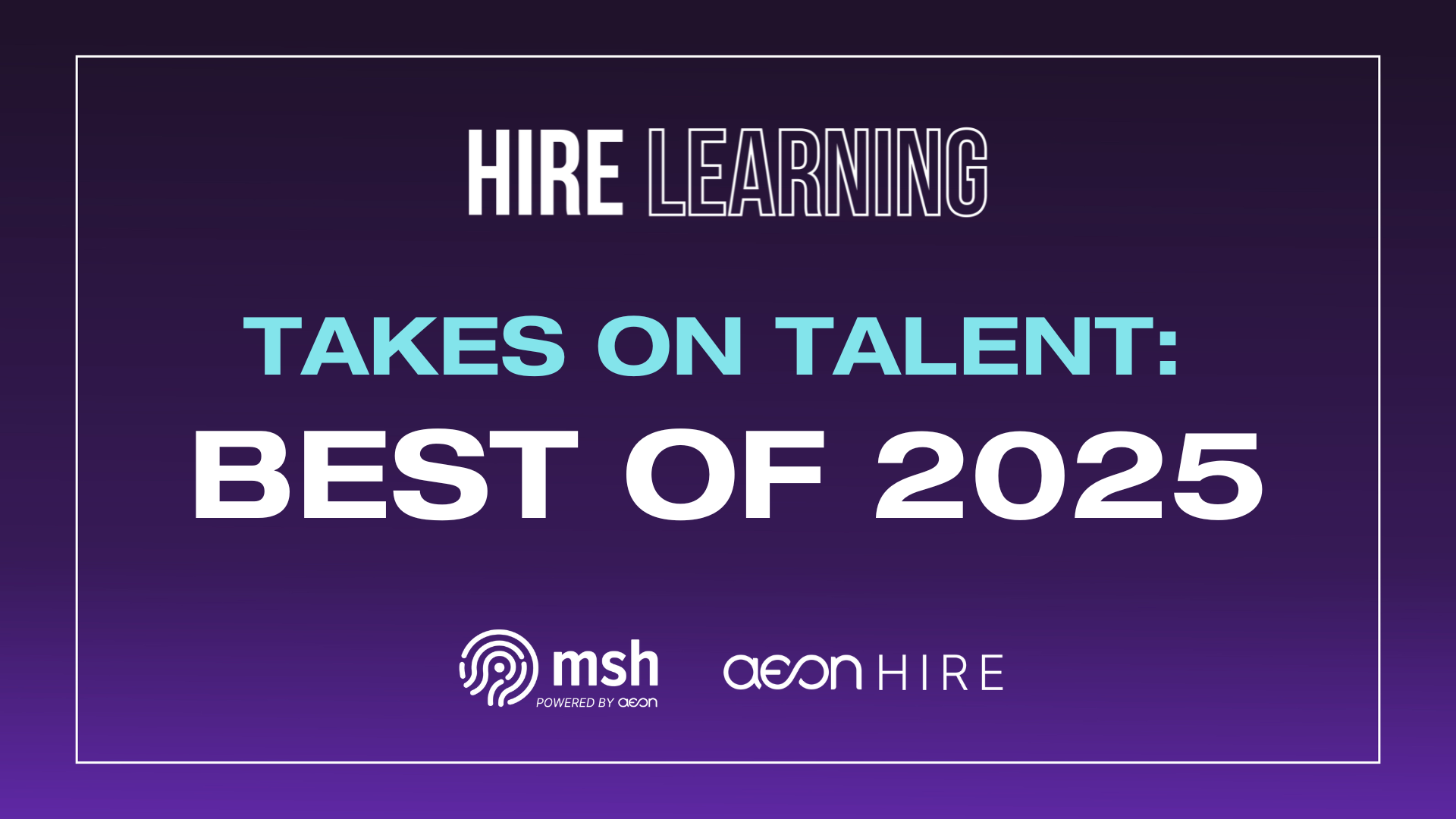Finding the right sports executive is like drafting a franchise player: get it wrong and you're stuck with a multi-million dollar mistake that haunts you for years.
While other Chief People Officers are playing it safe with the same tired recruitment playbook, you need a CPO guide to hiring that actually works in the high-stakes world of professional sports. Whether you're dealing with executive hiring in sports, figuring out how to hire for a front office, or navigating pro sports hiring challenges.
Recruiting and hiring sports executives isn't covered in your standard HR playbook. Sports organizations operate in a fishbowl where every hire gets dissected by the media, scrutinized by fans, and judged by results that show up on scoreboards.
The pressure is real, the stakes are astronomical, and there's no room for the "we'll figure it out as we go" approach when it comes to how to recruit and hire professional sports executives and management positions. .
If you're looking to fill front office positions, hire a new GM, or build out sports team leadership roles, this guide breaks down exactly how to navigate executive search in sports without losing your sanity (or your job).
5 Common Mistakes To Avoid When Hiring Sports Management
Here's what doesn't work in sports industry hiring tactics, and why these missteps have torpedoed more searches than you'd think:
- Hiring Under Media Pressure: Nothing good comes from rushing a hire because Twitter is having a meltdown. Quick fixes lead to expensive mistakes (just ask any team that's gone through three GMs in five years).
- The Old Boys' Club Trap: Relying solely on internal referrals might feel safe, but it's how you end up with the same recycled executives making the same predictable moves. Real market intelligence beats buddy recommendations every single time. This is why understanding current hiring trends across industries helps identify better talent pools and evaluation methods.
- Charisma Over Substance (Or Vice Versa): Some CPOs fall for the smooth talker who interviews like a dream but can't execute. Others dismiss charismatic candidates entirely, forgetting that sports executives need to work with players, agents, media, and fans.
- Reputation Blind Spots: Skipping thorough due diligence on how candidates are viewed by players, agents, or vendors is like ignoring injury reports before the draft. Those undiscovered red flags become PR nightmares after the hire.
- Background Check Shortcuts: In an industry where character matters as much as competence, cutting corners on background checks is organizational malpractice. One scandal can undo years of brand building faster than you can say "damage control."
These hiring advice for sports teams principles help you avoid common evaluation pitfalls.
What To Look For In A Great Candidate (Beyond The Résumé)
Forget the standard qualifications checklist. Here's what actually predicts success in sports leadership and hiring senior leadership for sports:
- Track Record Of Building High-Performing Teams: Look beyond win-loss records. The best sports executives develop talent, create sustainable systems, and build cultures that outlast their tenure. They turn organizations into destination jobs, not revolving doors. This means recruiting high-level sports talent who can elevate everyone around them.
- Relationship Management Mastery: Sports is a relationship business. Your ideal candidate needs to navigate complex dynamics with players, agents, ownership, media, and fans. They should have references from all these groups, not just former colleagues.
- Business Acumen That Drives Revenue: Modern sports executives aren't just team builders; they're business leaders who understand revenue generation, brand development, and fan engagement. Look for candidates who've moved the needle financially.
- Adaptability And Innovation: The world of sports evolves constantly – analytics, NIL deals, streaming rights, social media. Great executives evolve with the industry instead of clinging to outdated methods.
- Cultural Fit With YOUR Organization: It's about leadership style alignment with your ownership, organizational values, and long-term vision. A great executive for one team might be a disaster for another.
How To Recruit And Hire Your Next Exec
Time to stop winging it and start winning it. This step-by-step framework has helped organizations land game-changing executives who actually deliver results. Here's your play-by-play guide:
1. Align Internally Before You Even Start The Search
Get everyone singing from the same hymnal before the first candidate walks through the door. This means aligning owners, team presidents, and key stakeholders on goals, expectations, and process.
Define the strategic direction for this hire: Are you executing a culture reset? Rebuilding the brand? Stabilizing operations? Clarity here prevents mid-search pivots that scare off quality candidates.
Establish decision-making authority and reporting structure now. Will this executive have final say on roster moves? Budget authority? Power struggles after the hire destroy effectiveness and credibility.
Set confidentiality ground rules early to prevent leaks that create media speculation and spook candidates.
2. Define The Role Beyond The Title
Skip the generic job description copy-paste.
Titles like "GM" or "President" mean different things in different organizations, so create specific deliverables and success metrics for Year 1, Year 2, and Year 3.
Map out all dimensions of the role: team leadership, operational strategy, diversity goals, revenue targets, media responsibilities, and ownership alignment. Get input from departments that will work with this executive – finance, legal, operations, fan experience.
Vague expectations lead to vague results and disappointed ownership groups.
3. Build A Targeted, Diverse, And Private Longlist
Think beyond the usual suspects. Go wide and look across leagues (NBA, MLB, NFL, MLS, NCAA), sports-adjacent businesses, and even non-sports sectors like tech or hospitality for fresh perspectives. This is where front office best practices and front office recruiting strategies really matter.
Prioritize demonstrated impact over name recognition. The best candidate might be someone relatively under the radar but highly respected within the industry.
Don't overlook rising stars: assistant GMs, heads of player development, or business operations leaders ready for bigger roles. Smart team executive hiring focuses on building a talent pipeline for sports organizations that can adapt and grow.
Consider non-traditional candidates seriously. It took until 2020 for the MLB to hire its first female GM, Kim Ng, showing how easily great talent gets overlooked by "traditional" hiring habits.
Use discreet outreach methods to protect both candidate privacy and your organization's reputation. This means confidential calls through trusted intermediaries, private meetings away from team facilities, and zero social media or public speculation until deals are finalized.
4. Scorecards, Not Gut Feelings – How To Properly Evaluate Executives
Establish a structured scorecard based on the consensus from Step 1, so everyone evaluates candidates against the same criteria. This is critical for how to evaluate sports leaders objectively.
Assess key competencies: leadership style, cultural alignment, media savvy, business acumen, talent development ability, and staff management skills. Make it measurable, not subjective.
Include scenario-based questions relevant to your team's challenges: "What would you do if...?" This reveals how candidates think strategically under pressure.
Avoid the "they just feel like a fit" trap. Studies show structured assessments can reduce bias in executive hiring because unstructured, gut-driven decisions invite unconscious biases.
5. Sports Team Management Hiring: Bring The Org Into The Room Without Derailing The Process
Run structured panel interviews with select stakeholders, but avoid overexposing candidates to too many people too soon.
Be strategic about including cross-functional voices: trusted legal counsel, brand/marketing lead, operations head, and if appropriate, a respected player or coach.
Prep every interviewer on dos and don'ts. Ensure they understand the scorecard criteria and their specific role in the process.
Collect feedback systematically using standardized forms or debrief methods. Not a free-for-all group Slack where perspectives get lost in the noise.
Maintain strict confidentiality externally and have interviewers give independent feedback to prevent groupthink and leaks.
6. Deliver A Great Candidate Experience (This Is Still A People Job, After All)
Top candidates are vetting you as much as you're vetting them. In fact, 36% of candidates have declined offers due to bad interview experiences, so make every interaction count. Understanding sports hiring trends shows that candidate experience directly impacts offer acceptance rates.
Keep timelines tight and communication clear. Don't leave candidates in the dark or wondering what's next for weeks.
Provide personalized touches – no generic form emails at this level. Make each candidate feel valued regardless of whether they're the frontrunner.
Even candidates you don't hire should leave with a positive impression of your organization. They might refer other talent your way if treated well.
7. Close Fast And Creatively Because You Don’t Get Unlimited Chances
If you've found the right candidate, move decisively. This is especially true when you're learning how to find great GMs or other high-demand executives who have multiple options. Don't drag out the process assuming they'll wait around indefinitely.
Bring a creative, compelling offer: performance-based bonuses, upside potential (revenue share or equity), relocation assistance, or ambassadorial roles that appeal to their sense of legacy.
Understand what truly motivates this specific candidate. Is it family considerations, legacy building, or decision autonomy? Then tailor accordingly.
Keep negotiations quiet and professional. Your candidate shouldn't be reading about their own offer rumors on social media before it's finalized.
8. Onboarding Sports Executives: Onboard Like The Season Starts Tomorrow
75% of employees say a strong first 90 days is crucial for retention and success. Don't leave your new executive to sink or swim.
Have a robust 30-60-90 day plan ready. Smart professional sports hiring strategies include comprehensive onboarding that addresses cultural fit in sports teams.
Brief them thoroughly on key stakeholders, internal dynamics, and political landmines. Set them up for quick wins early on, but be realistic about timelines and resource needs.
Just like with healthcare recruitment strategies, successful sports executive hiring requires industry-specific expertise and understanding of unique organizational dynamics.
Why Partner With MSH For Your Next Sports Executive Search
At MSH, we've helped sports organizations hire across front offices, operations, HR, and IT roles – from hiring head of operations sports roles to building a comprehensive talent pipeline for sports organizations.
Whether you need to fill management positions in professional sports or build specialized teams, our approach integrates with your internal team instead of just handing off résumés and disappearing.
Our professional sports executive recruitment services deliver fast shortlist development, structured reporting, and senior-level support throughout the process.
Through our proprietary Aeon Hire platform, we assess long-term fit, mitigate bias, and provide real-time candidate feedback, which are crucial advantages in an industry where hiring mistakes become very public very quickly.



